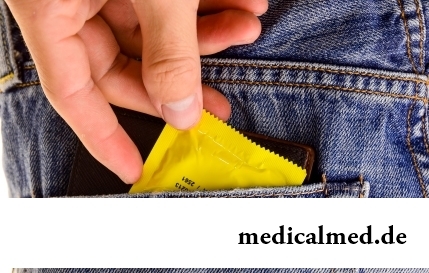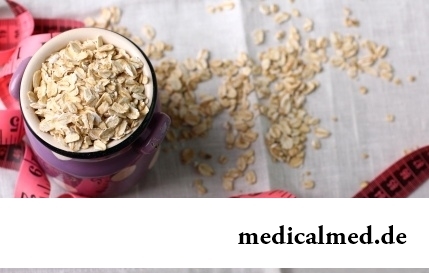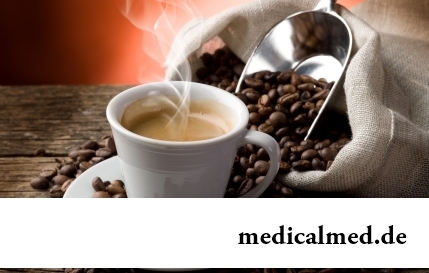





Reserpinum
Application instruction:
Reserpinum – the drug from group of sympatholytics having hypotensive and sedative effect, strengthening effects of analgetics and hypnagogues.
Form of release and structure
Dosage form – tablets (on 50 pieces in packaging, on 1000 pieces in a container).
Active ingredient: Reserpinum – 0,1 or 0,25 mg in 1 tablet.
Indications to use
- Arterial hypertension;
- Hyperkinetic syndrome;
- Psychoses against the background of the increased arterial pressure;
- Mental diseases of a vascular etiology.
Also Reserpinum is applied sometimes in the following cases:
- Easy forms of heart failure with tachycardia (in a combination with cardiac glycosides);
- Thyrotoxicosis (along with thyreostatic drugs, for reduction of neurovegetative frustration and an urezheniye of pulse);
- Hyper sympathicotonia;
- Persistent sleeplessness;
- Schizophrenia (in a combination with neuroleptics);
- Alcoholic psychoses.
Contraindications
- Congestive heart failure;
- Serious illness of cardiovascular system;
- Bradycardia;
- AV blockade;
- Depression;
- Ulcer colitis in an aggravation phase;
- Aggravation of a peptic ulcer of a stomach and 12-perstny gut;
- Diseases of kidneys with disturbance of their function;
- Bronchial asthma;
- Nephrosclerosis;
- Atherosclerosis of cerebral vessels;
- The period before carrying out a countershock;
- Period of pregnancy and lactation;
- Simultaneous use of monoamine oxidase inhibitors and 1 week after their cancellation;
- Hypersensitivity to drug.
Route of administration and dosage
Reserpinum should be accepted inside after food.
Specific doses and duration of treatment are defined individually.
At early stages of arterial hypertension appoint 0,05-0,1 mg 2-3 times a day. Further if necessary (but on condition of good tolerance of drug) the dose is gradually raised. The maximum daily dose – 1 mg. If within 10-14 days of hypotensive effect it is not possible to achieve, drug is cancelled. After achievement of effect the daily dose is gradually reduced: at first to 0,5 mg, then – to 0,2 mg, further – to 0,1 mg. For a maintenance therapy appoint minimal effective doses. Treatment will move courses for 2-3 months to 4 times a year.
At neurosises Reserpinum is appointed in a dose from 0,25 mg 2-3 times a day to 0,5 mg by 3-4 times a day.
At mental diseases in the first day appoint 0,25-2 mg, further depending on a clinical situation raise a daily dose to 10-15 mg.
The maximum doses for adults: one-time – 2 mg, daily – 10 mg.
Drug is shown to children depending on age and indications in a daily dose of 0,1-0,4 mg in 2-4 receptions.
Side effects
- From the alimentary system: abdominal pains, nausea, diarrhea, vomiting, ultseration mucous digestive tract; at long reception in high doses – an abnormal liver function;
- From an urinary system: increase of an urination or ischuria;
- From cardiovascular system: bradycardia; at reception in high doses – strengthening of symptoms of stenocardia;
- From the central and peripheral nervous system: dryness and puffiness of mucous membranes, fatigue, weakness, alarm, dizziness, sleeplessness or drowsiness, depressions; at reception in high doses – dreadful dreams, parkinsonism;
- Dermatological reactions: skin itch, herpes;
- Others: nose congestion, hyperemia of mucous membranes of eyes, asthma, increase in body weight, decrease in a potentiality and libido.
Special instructions
Because of a low performance and numerous side effects sympatholytics (Reserpinum including) carry to cure of the second row for arterial hypertension and psychoses.
During treatment it is necessary to control arterial pressure.
Medicinal interaction
- Beta adrenoblockers: mutual strengthening of pharmacological effects is noted;
- Adreno-and sympathomimetics: mutual decrease of the activity is noted;
- Anti-hypertensive means: the anti-hypertensive effect is exponentiated;
- Bromocriptinum: its influence on prolactin level decreases (dose adjustment is necessary);
- The alcohol and means oppressing the central nervous system: the depressive effect amplifies;
- Non-steroidal anti-inflammatory drugs (especially indometacin): anti-hypertensive action decreases;
- Anticholinergics: influence on gastric secretion decreases;
- The means causing extrapyramidal frustration: frustration amplify;
- Levodopa: its effect decreases (increase in a dose is required);
- Quinidine, cardiac glycosides: the pro-arhythmic effect develops;
- Furasolidone, Procarbazinum, and also monoamine oxidase inhibitors, including селегилин: there is a risk of development of sudden hypertensia and a hyper pyrexia.
Terms and storage conditions
To store in cool, protected from light, the place, unavailable to children.
Period of validity – 3 years.
Human bones are stronger than concrete four times.

The state of health of the person in many respects depends on food. The organism will well function if during food it are...
Section: Articles about health
Iodine - one of thirty most important microelements in our organism. The main role of iodine consists in synthesis of thyroid hormones of a thyroid gland - the substances which are responsible for the majority of exchange processes of an organism. It is known that thyroid hormones consist...
Section: Articles about health
One of the useful properties presented to the person by the nature is ability to feel fear. This ability is designed to signal about approach of a dangerous situation and to help to avoid in advance it to keep life. However if the fear is persuasive and is not reasonable, it can seriously limit possibilities of the person in respect of socialization and self-realization. Such pathological fear is called a phobia....
Section: Articles about health
Statistically, in Russia about 34% of citizens smoke. Most of consumers of tobacco has problems about health sooner or later...
Section: Articles about health
Statistically, at the address to doctors seven of each ten patients complain of a headache. Actually it is much more people who are periodically feeling unpleasant feelings such. Many people, apart from a headache the reason for serious fear...
Section: Articles about health
The healthy nutrition is the invariable principle of health and good health for long years of the woman. Nevertheless, in a diet at each stage of life there are the features allowing to support an organism by those substances which are most necessary for it at present. Eating according to them, the woman will be able to feel vigorous and strong, and also to adapt to changes in an organism so that they allowed it to lead active lifestyle at any age....
Section: Articles about health
All are familiar with cold, and practically everyone believes that he has sufficient knowledge and experience that correctly to treat it. N...
Section: Articles about health
Epilepsy is one of widespread neurologic diseases. Parents, whose children suffer from this illness, should face rumors and delusions, many of which remained since the Middle Ages....
Section: Articles about health
Each person supports all life a SARS about 200 times. The peak of incidence falls on cold season, but it is possible to get sick with a temperature and a pharyngalgia, and sometimes and very possibly, even during a heat. The reasons for development of catarrhal diseases there is a set: from the weakened immunity till an excess portion of ice cream....
Section: Articles about health
Each person knows that fervescence is an illness sign. However about existence of diseases can to suite...
Section: Articles about health
Today about 30 diseases, sexually transmitted are known. Wide circulation of these illnesses is extremely promoted by the dual attitude towards them: on the one hand, most of people know about "shameful" diseases and not a stirrup very little...
Section: Articles about health
About 10-15 years ago existence of the computer in the apartment of the Russian was considered as a rarity and office rooms were only at the first stage of equipment by these useful devices. Today practically in each house there is a computer (and often not one), and a regular user is already every our second compatriot. Convenience and efficiency of personal computers are undoubted, but the people working with them daily have to know also about health hazard which they can predstavlit...
Section: Articles about health
The list of stereotypes of which, apparently, all know strongly includes following: British surely eat for breakfast овсянк...
Section: Articles about health
For anybody not a secret that our country is one of the most "drinking" in the world. At clear understanding that the use of hard alcoholic drinks – occupation extremely harmful, most of Russians belong to alcoholism with unjustified loyalty. These...
Section: Articles about health
The problem of diagnosis was and remains to one of the most important in medicine. From that, the reason of an indisposition of the patient will be how precisely defined, eventually success of treatment depends. In spite of the fact that the majority of the diagnostic methods applied in official clinical practice has very high informational content and reliability, mistakes directed by diagnoses nevertheless are not excluded....
Section: Articles about health
What they, women? Beautiful, gentle, passionate and at the same time windy, gusty, and nervous. And what is stranger: all эт...
Section: Articles about health
The phenomenon of improvement of a condition of the patients at administration of drugs who are not containing active agents, so-called effect of placebo is known long ago. At the end of the 18th century the American doctor Perkins began to treat people the "miracle" sticks made of a spl...
Section: Articles about health
The words "disease" and "patient" not without reason come from one root – "pain". As a rule, symptoms of illnesses thoroughly spoil to patients life. However from this rule there are exceptions. Some diseases are shown by signs which can cause even positive emotions. It is a pity only that the majority of such illnesses are heavy and incurable....
Section: Articles about health
Within several decades of our compatriots convinced that the use of butter nasty affects on...
Section: Articles about health
Food with the increased content of sugar is attractive to most of people - it is scientifically confirmed fact. Business here not in intemperance or dissoluteness: the sweet food is associated since childhood with feeling of rest and safety which is felt by the kid, to...
Section: Articles about health
The thought that the mass of their body is too big at least once in life visits from 80 to 95% of women. Many women are so obsessed with this idea that constantly try all new and new ways of weight reduction. A considerable part of these techniques is ineffective, and some in general are unsafe for health....
Section: Articles about health
The trophic ulcer is not an independent disease. This heavy complication arising owing to a thermal injury (a burn...
Section: Articles about health
Dogrose – one of the most widespread adornment and medicinal plants growing practically in all territory of our country. To most of Russians it is a beautiful bush it is known, first of all, as a source of fruits, extremely vitamin-rich....
Section: Articles about health
The Genetically Modified Organisms (GMO) are plants or animals (as a rule, agricultural) to whose genotype purposeful changes were made. Opposition of supporters and opponents of inclusion of such organisms in foodstuff always was very acute. Not only scientists and dietitians, but also a large number of the people who are not specialists in this question are involved in active disputes today....
Section: Articles about health
Good appetite was always considered as a sign of good health. The correct operation of the mechanism which is responsible for the need for nutritious...
Section: Articles about health
Phobia – the persuasive fear of a certain contents shown in a specific situation against the will of the person. Concepts of a phobia and fear are similar, however if the fear is natural protective function of mentality, then the phobia is its deviation. So the person can an ispytyva...
Section: Articles about health
The dietology, as well as other sciences, does not stand still. Food stuffs are exposed to comprehensive study, and scientists obtain new information on their properties and influence on a human body. Unfortunately, this reasonable and natural process gives unpleasant side effect from time to time: some types of food periodically declare "harmful" or even "deadly" without the bases, sufficient on that....
Section: Articles about health
